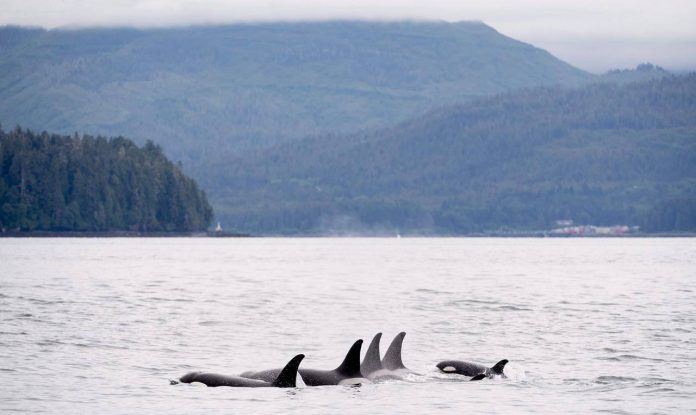A new study using Ocean Networks Canada’s (ONC) Pacific Ocean hydrophone data reveals a significant reduction in underwater noise during the COVID-19 shutdown, which may be good news for endangered southern resident killer whales.
When the coronavirus put the world on lockdown in March 2020, David Barclay, assistant professor at Dalhousie University’s Department of Oceanography, recognized a unique opportunity to monitor changes in underwater noise. Without leaving his home in Atlantic Canada, Barclay was able to remotely study the Pacific Ocean soundscape using ONC’s open and freely available, continuous, real-time hydrophone data.
“ONC operates an amazing network of underwater observatories that provide a tool to characterize the soundscape of British Columbia’s coastal waters,” says Dr. Barclay. “These hydrophones allow us to analyze everything from the force of winter storms to the presence of killer whales—all in near real-time.”
The research paper, which was recently accepted for publication in the Journal of the Acoustical Society of America, found a consistent drop in underwater noise since 1 January 2020, amounting to four or five decibels in the period up to 1 April 2020. Using data from ONC’s network of underwater microphones allowed Barclay and his east coast colleagues to monitor noise levels in the deep sea off the west coast of Vancouver Island, and in the Strait of Georgia, home to Canada’s busiest port as well as the endangered southern resident killer whales.
“This is an unprecedented opportunity to study a quieter ocean,” comments Richard Dewey, ONC’s associate director of science. “What we are seeing right now is a significant shutdown, anywhere from 20 percent for some deep-sea cargo vessels and ferries, all the way up to 100 percent for the tourism, cruise ships, and whale watching industries.
The endangered southern resident killer whales have yet to make their annual arrival to their inland summer feeding grounds in the Salish Sea. These social marine mammals depend on sound in the same way humans depend on sight, so a quieter ocean will likely make it easier for them to communicate, navigate, socialize and hunt.
“There is extreme value in having this information from the observatories at our fingertips,” says Dr. Barclay. “We plan to look at it in detail and dissect it over the entirety of the pandemic. This could be an important opportunity for biologists and ecologists to study and understand what exactly happens when we turn down the noise in the marine environment.”
There are other groups, many associated with an international effort called the Quiet Ocean Experiment, who are looking at acoustic data from around the world (including ONC’s hydrophone recordings) to quantify how the reductions in shipping and human marine activities during the COVID-19 slowdown are affecting the amount of noise in the ocean.





























